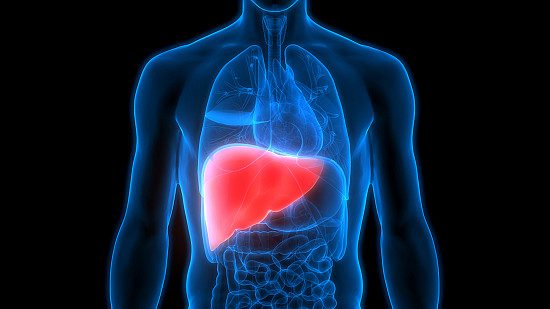Dianabol, also known as Dbol, is one of the most widely used anabolic steroids, famed for its ability to increase muscle mass and strength. While its physical benefits are well-documented, the psychological effects it poses on users are an area of growing interest among researchers and healthcare professionals. Evaluating the psychological ramifications associated with dianabol use is essential, as these can influence an individual’s mental health and overall quality of life.
The allure of dianabol lies in its rapid performance-enhancing abilities, but beyond the physiological changes, it can significantly alter mood and cognitive functions. Regular use of dianabol has been linked to mood swings, increased aggression, and changes in anxiety levels. These psychological effects raise concerns as they may not only affect the user but also have a ripple effect on their social and work-related interactions. It is pertinent that individuals considering or currently using dianabol are aware of these potential mental health risks, as well as the substance’s interactions with existing health conditions and other substances.
Quick Summary
- Dianabol’s ability to enhance muscle and strength is coupled with significant psychological effects.
- Mood swings, aggression, and changes in anxiety levels are some mental health concerns linked with dianabol use.
- Awareness of dianabol’s mental health risks and interactions with other health conditions is essential for users.
Understanding Dianabol and Its Usage

Dianabol, known chemically as methandrostenolone, is a potent oral anabolic steroid originally developed for medical purposes. Its role in athletics and bodybuilding has sparked significant discussions about its legal status and ethical considerations in sports.
History and Development of Dianabol
Dianabol was first synthesized in the 1950s as one of the first anabolic steroids. It was developed to promote muscle growth in patients suffering from diseases that cause muscle wastage. Dianabol’s effectiveness in rapidly improving muscle mass made it popular among athletes and bodybuilders, revolutionizing the use of performance-enhancing substances in sports.
Common Uses in Athletics and Bodybuilding
Athletes and bodybuilders commonly use Dianabol for its quick and significant effects on muscle strength and size. As an anabolic steroid, it enhances protein synthesis and nitrogen retention, which are essential processes for muscle growth. Its popularity stems from the fact that it enables considerable gains within a short time frame.
Prescription and Legal Status
The prescription of Dianabol, or methandrostenolone, is strictly regulated. In the United States, it is classified as a Schedule III controlled substance under the Controlled Substances Act. Its legal status varies by country, but in many places, Dianabol is not legal for bodybuilding or athletic enhancement and is available only for certain medical conditions.
References
The Psychological Impact of Dianabol

Dianabol, a powerful anabolic steroid, has significant effects not only on physical appearance but also on psychological states. These effects can range from mood disturbances to aggressive behavior.
Mental Health and Mood Disturbances
Studies show that Dianabol can lead to mood swings, which may manifest as alternating periods of euphoria and depression. Depression in some individuals can be profound, contributing to a reduced quality of life. Moreover, the use of Dianabol has been connected to shifts in motivation and self-esteem, sometimes linked with its performance-enhancing effects. Cases of addiction have also been observed, indicating a potential for Dianabol to lead to substance dependence.
- Mood Swings: Fluctuations between high and low moods.
- Depression: Reports of deepened episodes during and after use.
- Addiction: Patterns suggest a risk of psychological dependence.
Aggression and Behavioral Changes
Dianabol is associated with increased levels of aggression and hostility, which can have a profound impact on interpersonal relationships as well as social interactions. Some users report heightened feelings of anger, even leading to aggressive outbursts. These behavioral changes are significant and pose risks to the user and those around them.
- Aggression: Increased frequency and intensity.
- Hostility: Greater potential for confrontational interactions.
- Anger: Heightened and oftentimes unprovoked anger episodes.
References
Physical and Physiological Effects

Dianabol, also known as methandrostenolone, is an anabolic-androgenic steroid that brings about significant changes in both hormonal levels and muscle physiology, thereby impacting overall physical performance and health.
Hormonal Changes and Sexual Health
Dianabol use in men leads to an increase in testosterone levels, which can temporarily enhance sexual health and libido. However, due to its estrogenic effects, the body may also experience an increase in estrogen levels, potentially leading to gynecomastia (development of breast tissue in men). For women, the rise in testosterone may induce masculinizing effects and disrupt the menstrual cycle.
Muscle Growth and Physical Performance
The appeal of Dianabol primarily lies in its capacity to rapidly increase muscle growth and strength. Its anabolic properties accelerate protein synthesis and nitrogen retention in the muscles, leading to enhanced physical performance and muscle mass gains in a relatively short time frame.
Adverse Effects on the Body
Despite its muscle-building benefits, Dianabol’s adverse effects cannot be overlooked:
- liver Damage: Risk of liver tumors and liver damage is heightened due to the steroid’s hepatotoxic nature.
- Cardiovascular Issues: There’s an increased risk of developing high blood pressure, which may lead to a heart attack or stroke.
- Physiological Changes: Prolonged use can lead to mood swings and aggression, changes collectively known as ‘roid rage’.
References
Interactions with Health Conditions and Substances

Dianabol has significant interactions with various health conditions and substances which can impact its effectiveness and the user’s safety. Understanding these interactions is crucial for individuals considering the use of Dianabol, especially when managing existing health conditions or taking other substances.
Substance Use and Contraindications
Contraindicated Conditions:
- Liver Conditions: Use in individuals with liver conditions such as hepatitis or hepatotoxicity may exacerbate liver damage. Monitoring liver enzymes is essential.
Substance Interactions:
- Estrogens: Concomitant use of Dianabol with estrogen-containing therapies can increase the likelihood of estrogen-related side effects due to Dianabol’s aromatizing effects.
- Diuretics: These may exacerbate Dianabol’s effects on blood pressure and fluid retention, increasing risks for heart attack and stroke.
Managing Side Effects and Monitoring Health
Monitoring Parameters:
Blood Pressure:
- Regularly monitor in users to prevent hypertension complications.
Lipids:
- Monitor cholesterol levels to mitigate risks of cardiovascular events.
Side Effect Management:
- Anemia: Patients may see an improvement due to the erythropoietic effects of Dianabol.
- Diabetes: Blood glucose should be monitored closely as Dianabol can influence glycemic control.
- Weight Management: Users should be aware that weight gain from Dianabol might not exclusively be muscle, thus diet and weight should be carefully monitored.
References
- National Institute on Drug Abuse (NIDA) on Steroids and Other Appearance and Performance Enhancing Drugs (APEDs): https://www.drugabuse.gov/publications/drugfacts/anabolic-steroids
- Mayo Clinic on Hepatotoxicity: https://www.mayoclinic.org/diseases-conditions/drug-induced-hepatitis/symptoms-causes/syc-20352258
- American Heart Association on High Blood Pressure and Cardiovascular Risk: https://www.heart.org/en/health-topics/high-blood-pressure/changes-you-can-make-to-manage-high-blood-pressure
Dianabol Use and Discontinuation

Dianabol, a widely recognized anabolic steroid, presents significant considerations for cycle length and dosage, while its discontinuation calls for careful monitoring to address withdrawal symptoms and the need for post-cycle therapy.
Cycling and Dose Considerations
When taking Dianabol, users must assess the optimal cycle length and dosage to align with their bodybuilding goals, while minimizing health risks. A typical cycle can vary from 4 to 6 weeks. Dosages commonly range between 15 to 50 milligrams per day but should always be tailored to individual tolerance and past steroid use.
- Cycle Length: 4-6 weeks
- Dosage: 15-50 mg/day
Monitoring is crucial during the cycle to mitigate potential adverse effects. Users should have regular blood tests to monitor liver function and hormone levels.
Withdrawal and Post-Cycle Recovery
Discontinuing Dianabol usage can lead to withdrawal symptoms such as fatigue, depression, and the onset of hypogonadism due to natural testosterone suppression. To address these concerns:
- Withdrawal Symptoms:
- Fatigue
- Loss of strength
- Depression
- Post-Cycle Therapy (PCT):
- Typically initiated immediately after a cycle
- Aims to restore hormonal balance and alleviate withdrawal symptoms
- Involves medications such as Nolvadex or Clomid for a period usually lasting several weeks.
It’s essential to carefully plan the post-cycle period to minimize health risks and facilitate recovery.
Frequently Asked Questions

How to manage behavioral changes associated with steroid use?
Individuals experiencing behavioral changes due to steroid use should consult a healthcare professional. Seeking therapy or psychological support can provide strategies for managing these alterations effectively.
What are the common emotional side effects when taking anabolic steroids?
Anabolic steroids often lead to heightened aggression, mood swings, and irritability. Users may also experience euphoria or depression as a consequence of steroid use.
In what ways do steroids impact mood and cognitive function?
Steroids can affect neurotransmitter systems in the brain, leading to mood disturbances and cognitive impairments such as difficulty concentrating or memory lapses.
Can anabolic steroids lead to psychological dependency, and how?
Steroid users may develop a psychological dependency due to the positive feelings associated with improved body image and performance enhancement, creating a cycle of continued use.
What is the duration of psychological changes following steroid cessation?
Psychological changes can persist for weeks to months after cessation, although this duration can vary based on individual factors and the duration of steroid use.
What signs indicate the onset of ‘roid rage’ and how can it be addressed?
‘Roid rage’ is characterized by uncontrolled aggression and explosive anger. Recognizing these signs early and seeking professional help is crucial to managing this condition.
Dr. Grant Fourie, a specialist in male hormones, is based in Cape Town, South Africa. He provides comprehensive treatments for conditions related to low testosterone, such as erectile dysfunction, fatigue, and mood changes. His methods include hormone replacement therapy and other modern treatment options.
Contact me via email or phone to book personal appointment in my clinic: The Village Square, Cape Town - South Africa



